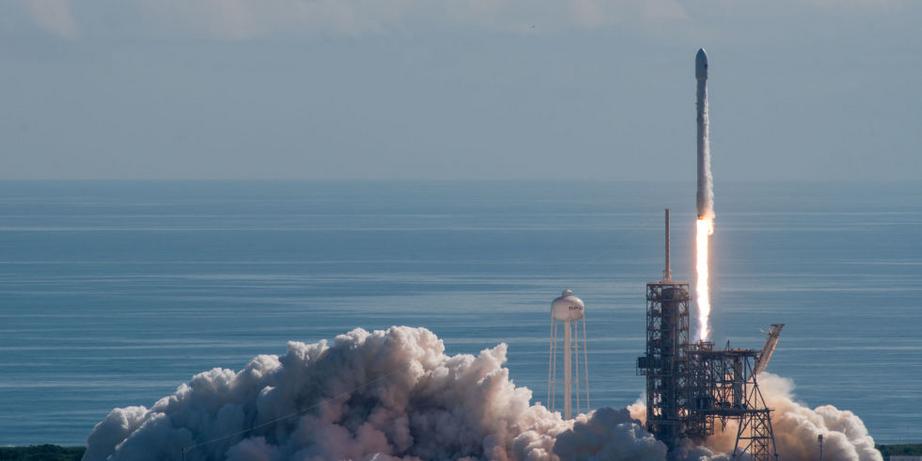SpaceX is planning a mystery launch
... for Northrop Grumman next month (Updated)
The previously undisclosed mission is codenamed "Zuma," and no one knows what the payload is.
Update 5:10 p.m.: A commercial launch contract acquired by NASASpaceflight.com indicates the payload for the Zuma mission will be supplied by Northrop Grumman. The site reports that the mission type is listed as "government" and the contract calls for a launch between November 1 and November 30.
Original Post:
An application SpaceX has submitted to the FCC reveals that the company is planning a Falcon 9 launch for an undisclosed customer. Codenamed "Zuma," the mission will launch from pad 39A at NASA's Kennedy Space Center in Florida and could occur as soon as November 10, as first reported by NASASpaceflight.com and Spaceflight Now.
It's unusual that the launch, disclosed in FCC applications that are public record, has remained unannounced to the public so close to the planned launch date. No customer, company or government has claimed ownership of the payload, which is also uncommon but not unheard of. Even the spooky National Reconnaissance Office (NRO) publicly announces launches for its spy satellites, such as the NROL-52 launch on an Atlas V rocket on Sunday, October 15, although the intelligence agency keeps the details of its satellites and missions classified.
SpaceX did not immediately respond to a request for comment.
During a Falcon 9 launch, SpaceX uses telemetry transmitters and receivers to track the flight of the rocket, and the company must file an application with the FCC to do so. Two applications were filed concerning the mystery launch: one for the launch vehicle's liftoff from pad 39A and another for the first stage's return to Earth for a landing attempt at Landing Zone 1 at Cape Canaveral Air Force Station.
The details of the launch add to the mystery of the mission's purpose. As Spaceflight Now points out, the most common types of satellite launches—high orbit communications and low orbit Earth imaging—are both unlikely given the circumstances of the launch. From Spaceflight Now:
Zuma's owner—commercial or government—has not been revealed, and Falcon 9 launches into high-altitude geostationary-type orbits populated by communications satellites typically use more of the rocket's propellant reserve, requiring landings on vessels at sea, and not on land.
For the rest of this article please go to source link below.

